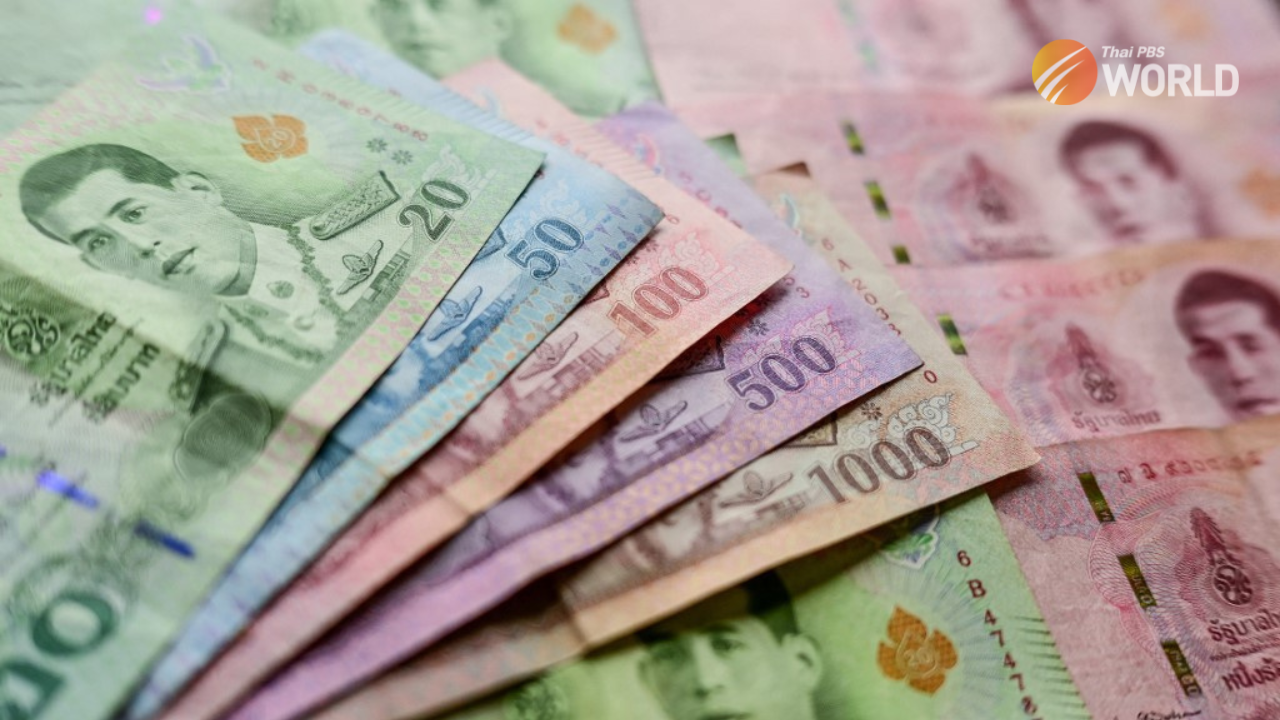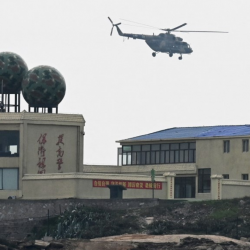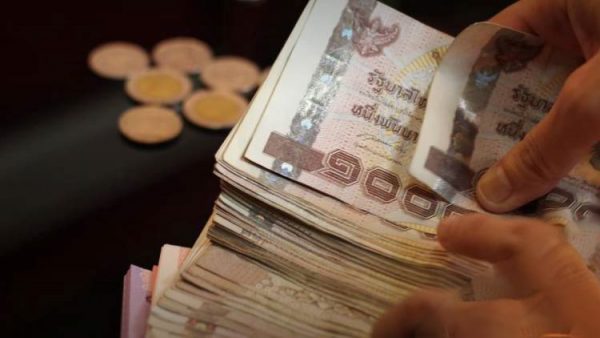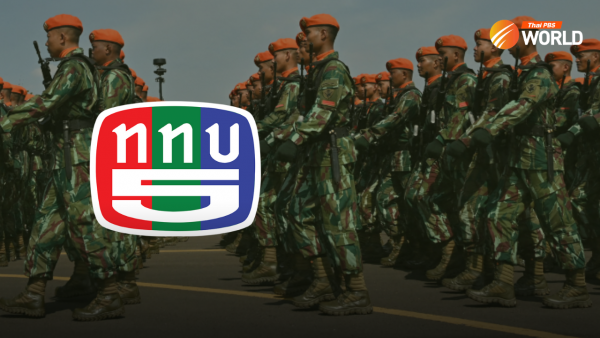Are political parties shortchanging the economy with populist platforms?

The latest populist promise by the Pheu Thai Party of digital currency handouts has stirred a hot debate on the policy platforms of parties contesting the May 14 general election.
Pheu Thai executives pledged to offer everyone aged 16 years and above 10,000 baht via a digital wallet if the party wins the election and forms the next government.
The cash will be deposited in a digital account of each person for six months. People will get the key from the government and they can spend the money within a radius of 4 kilometers of their homes. They can buy daily necessities but not alcoholic beverages.
Pheu Thai executives justified it as a measure to jumpstart the economy and effectively pave the way for widespread use of digital currency issued by the central bank, known as Central Bank Digital Currency (CBDC).
Critics are questioning the source of the funds for the scheme, estimated to cost over 500 billion baht, and labelled it a populist policy.
A common ruse
It is not Pheu Thai alone that has taken to the path of populism. Other parties have also proposed policies that have raised concerns about their impact on public debt, now capped at 70 percent of gross domestic product (GDP).
The leader of the outgoing ruling coalition, Palang Pracharath Party, has launched a campaign promising to increase pensions for the elderly to between 3,000 and 5,000 baht a month from 600 to 1,000 baht at present, depending on the age of the individual. Welfare card holders will get 700 baht a month, more than double the current 300 baht, covering about 14.6 million people.
The political platform of another ruling coalition partner, Bhumjaithai Party, promises to suspend debt repayment by each debtor for three years, up to 1 million baht. According to the party, suspension of debt means neither principal nor interest rate payment for three years.
The coverage of debt suspension will include bank loans, debt to other financial institutions, debt owed to cooperatives, education funds, village funds, credit cards, and finance and leasing providers. The party cited the impact of COVID-19 on the living standards of the people for the measure.
The coverage is expected to impose a huge load on the fiscal system due to the huge household debt. As of the third quarter last year, Thai household debt was at 86.5 percent of GDP, an alarming level. The number of debtors was estimated at 25 million, or about a third of the total population, and each had an average debt of 527,000 baht as of the third quarter of 2022.
Bhumjaithai’s debt suspension policy would effectively cover about 25 million people, more than one-third of the country’s population.
Would the next government be kinder to migrants and refugees?
Aimed at economic growth
Pheu Thai executives say they want to jumpstart the economy that has been sluggish for eight years since the 2014 coup. However, not everyone agrees with the policy of large spending.
Without pinpointing any of the promised policies, Bank of Thailand (BOT) Governor Sethaput Suthiwartnarueput said government policies should aim at stabilizing the economy not boosting growth. The economy this year will continue to expand, at about 3.6 percent, he said.
He conceded that there were a lot of uncertainties ahead hence both monetary and fiscal policies needed to be framed carefully and the country needed to build up a buffer to withstand any shocks.
The Monetary Policy Committee of the BOT, which determines monetary policy and has been slowly increasing the interest rate to normalize monetary policy from a very low-interest base, is at the same time keeping a close eye on inflation.
Judging from Sethaput’s own words, carefully coordinated monetary and fiscal policies would help Thailand navigate safely through uncertainties.
Focused assistance
His view is shared by Kiatipong Ariyapruchya, senior country economist of the World Bank in Thailand. He said the government did not need to launch blanket spending on social welfare, as the country’s fiscal position has already been weakened by the massive spending to deal with the fallout of the COVID-19 pandemic. “We at the World Bank suggest targeted spending, with the aim of supporting vulnerable groups.”
Distributing government cash among large sections of the population will not help much, as each person will get only a small sum, he said. By narrowing the focus to cover only fragile groups, each will get enough funds to bear their cost of living, he explained.
Kiatipong also suggested that the government increase taxes, such as value-added tax (VAT) and property tax, in order to generate more revenue. Thailand’s VAT is currently at 7 percent, a relatively low rate by international standards, especially in upper-middle-income countries.
Some economists, including Somchai Jitsuchon, a research director at Thailand Development Research Institute, support universal welfare schemes, such as child grants covering all children aged up to 6 years old, and not limited to only low-income families. He argues that the current scheme excludes many poor children due to the problem of survey coverage.
People with disabilities and voting – What can be done better?
Source of funding ambitious policies
As political parties campaign for big spending items, there are few details on the source of the funding.
The Pheu Thai Party cited an additional revenue projection for fiscal 2024 of 260 billion baht with the rest coming from cutting lower-priority expenditures.
The incumbent Cabinet recently approved the annual spending plan for fiscal 2024 of 3.35 trillion baht, continuing the budget-deficit trend.
The next government is expected to finalize the spending and they may incorporate their own policies into the next fiscal budget due to start on October 1.
“Regarding spending via a digital wallet, it is not clear yet where the funding will come from,” said Somporn Isvilanonda, senior fellow at Knowledge Network Institute of Thailand
Defining populism
The Cambridge Dictionary defines populism as “political ideas and activities that are intended to get the support of the ordinary people by giving them what they want, such as tax cuts and higher wage”.
Economists are wary of populism and often cite examples of infamous attempts by many countries in South America that led to fiscal debacles, triggering high inflation and sharp depreciation of their currencies.
Thailand’s love affair with populism can be traced back to 1975 when the Kukrit Pramoj government allocated a large chunk of the budget for rural development projects aimed at stimulating the economy and creating jobs.
In recent times, the controversial rice-pledging scheme implemented by the former Yingluck Shinawatra government became controversial and led to allegations of corruption, and it was partly seen as the reason for the military coup that toppled her government. Pheu Thai supporters argued that the rice-pledging scheme to support farmers was implemented within the scope of fiscal prudence.
The Thai Rak Thai Party, the predecessor of Pheu Thai that was disbanded following a Constitutional Court order, in 2001 launched the universal healthcare scheme. Many experts had initially opposed the universal healthcare scheme and labelled it a mega-populist policy, but over the years it has won wide acceptance and acclaim both locally and from international public health institutions as a successful policy in shaping public healthcare in Thailand.
Noted local economist Ammar Siamwalla says the dividing line between a good and a bad policy is the matching of a spending plan with commensurate projected revenue, through measures such as tax rise, not through unsustainable public debt that passes the cost on to future generations.
By Thai PBS World’s Business Desk






